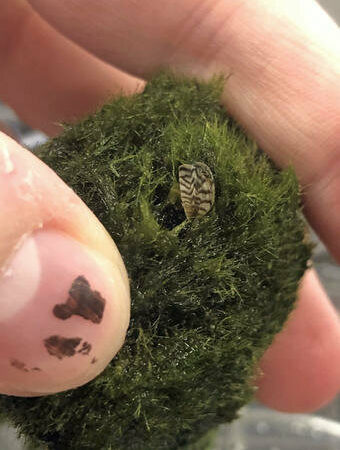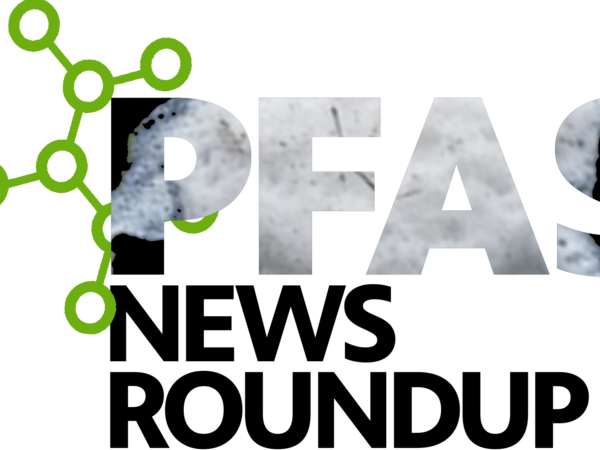
For Chicago’s Alaina Harkness, the availability and well-being of Chicago and the Great Lakes region’s water is clear. It’s about innovation, and that requires collaboration. Bringing together the right mix of policy, science, tech, advocacy groups, and others to work on common priorities for the future of water.
This mix happened recently at Chicago Water Week, organized by the not-for-profit, Current, a Chicago-based water innovation hub. Current is also a recipient of a National Science Foundation grant “to boost Great Lakes leadership on resource recovery and the circular economy.”
Harkness is Current’s executive director, and Great Lakes Now recently interviewed her about the need to focus on innovation and why water abundance is a double-edged sword by commenting on the city of Chicago’s controversial 2023 deal to sell Lake Michigan water outside the Great Lakes basin.
The interview was conducted via email and was edited for length and clarity.
Great Lakes Now: Current’s Chicago Water Week events are heavy on innovation followed by collaboration. Can you explain the emphasis on innovation?
Alaina Harkness: Innovation is simply a commitment to improvement over the status quo. The purpose of innovation is to continually improve the way we manage water, from conservation and reuse to water quality to flooding; to deliver cleaner water, to mitigate the harms that too much water out of place can cause, and to use it more efficiently and steward it more carefully in light of increasing demand on a finite resource. Innovation is integral to delivering on all of our water priorities.
GLN: What about conservation of water? As I watched events, conservation was rarely mentioned and it was conspicuous by its absence in the session on A Vision for Water: Planning for Abundance & Scarcity hosted by Chicago’s Metropolitan Planning Council.
AH: In the Great Lakes states we have a relative abundance of freshwater but we tend to treat it as if it is infinite. This is a problem. Our abundance has been both an advantage to us, and a source of complacency, especially with respect to conservation and reuse. Current’s blueprint for the Blue Economy, Upstream Illinois, cautions that as climate pressures intensify, and people and businesses are drawn to our region for its water abundance, “we must prepare to use our resources carefully and hold ourselves accountable for protecting the Great Lakes for generations to come.”
GLN: Last year Chicago agreed to supply water to Joliet which is outside the Great Lakes basin. That wouldn’t normally be allowed except Chicago’s water withdrawals from Lake Michigan aren’t governed by the Great Lakes Compact which is designed to prevent diversions. The sale raised eyebrows in the Great Lakes region from Cleveland Plain Dealer editors, Cameron Davis in Chicago, Maude Barlow in Canada, and Michigan policy expert Dave Dempsey. Does Current support Chicago’s sale of water to Joliet, and the possibility of additional deals that will generate revenue for the city?
AH: This area has a regional water governance framework in place that enabled Chicago’s sale of water to Joliet. We believe that there will be increased demand for Chicago’s allocation of water as other communities face the same groundwater challenges as Joliet, and that there is an urgent need to plan as a region for that future.
GLN: In 2021, greater Chicago’s Metropolitan Water Reclamation District passed a resolution calling for water as a human right, opposed trading it as a commodity and privatization. The resolution said it should remain a public trust “for the people of the Great Lakes region.” Does Current support MWRD’s resolution?
AH: We view Great Lakes water as an asset to the people, communities and ecosystems of the Great Lakes Region. We should recognize that it is a globally-significant resource, and steward it carefully.
GLN: As a convener who works with organizations across multiple water disciplines, what is important for people from Minnesota to New York and the Canadian provinces of Ontario and Quebec to know about Chicago’s stewardship of the Great Lakes?
AH: With climate change increasing water stressors elsewhere, we need to anticipate the growing demand on the Great Lakes water supply and prioritize intensified water conservation, reuse, and water quality efforts.
We need to accelerate innovation and adoption of the technologies that will help us do so. Everything from sophisticated ways to detect and address leaking municipal water pipes to reuse treated industrial wastewater and the valuable resources we can recover from those sources. And we have an opportunity to build, test, and deploy them here in Chicago and across the Great Lakes region.
But technology adoption’s speed is determined by the market, and the market by policies and regulations. We need to examine the policies that will enable broader adoption of water conservation, reuse and resource recovery, and we need to work together across our region to implement them. Chicago and Illinois can play a bigger leadership role in stewardship.
Editor’s note: A Chicago Water Week session titled A Vision for Water was hosted by Chicago’s Metropolitan Planning Council (MPC). In the session, there was little if any mention of conservation of water and Great Lakes Now questioned its absence. MPC director Ryan Wilson moderated the session and declined requests to comment.
Catch more news at Great Lakes Now:
Michigan author reflects on 20th anniversary of landmark book The Living Great Lakes
Line 5 activist group wants Gov. Whitmer to “be an advocate” for shutdown
Featured image: Chicago River. (Photo Credit: Gary Wilson)




